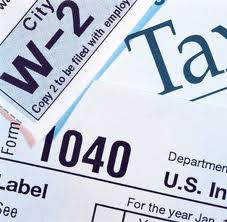
 Lynchburg City Property Tax Rate 2025 [Go To Different County]
Lynchburg City Property Tax Rate 2025 [Go To Different County]
Lynchburg City, Virginia Property Tax
[Go To Different County]

$1,248.00
The median property tax in Lynchburg City, Virginia is $1,248 per year for a home worth the median value of $139,100. Lynchburg City collects, on average, 0.9% of a property's assessed fair market value as property tax.
Virginia is ranked 1105th of the 3143 counties in the United States, in order of the median amount of property taxes collected.
The average yearly property tax paid by Lynchburg City residents amounts to about 2.39% of their yearly income. Lynchburg City is ranked 1059th of the 3143 counties for property taxes as a percentage of median income.
You can use the Virginia property tax map to the left to compare Lynchburg City's property tax to other counties in Virginia. Falls Church city collects the highest property tax in Virginia, levying an average of $6,005.00 (0.94% of median home value) yearly in property taxes, while Buchanan County has the lowest property tax in the state, collecting an average tax of $284.00 (0.46% of median home value) per year.
To compare Lynchburg City with property tax rates in other states, see our map of property taxes by state.
Lynchburg City Property Tax Rate
- Lynchburg City Property Tax
- About the Lynchburg City Property Tax
- More Information (opens in new tab)
Because Lynchburg City uses a complicated formula to determine the property tax owed on any individual property, it's not possible to condense it to a simple tax rate, like you could with an income or sales tax.
Instead, we provide property tax information based on the statistical median of all taxable properties in Lynchburg City. The median property tax amount is based on the median Lynchburg City property value of $139,100. You can use these numbers as a reliable benchmark for comparing Lynchburg City's property taxes with property taxes in other areas.
Our data allows you to compare Lynchburg City's property taxes by median property tax in dollars, median property tax as a percentage of home value, and median property tax as a percentage of the Lynchburg City median household income.
| Median Property Tax | As Percentage Of Income | As Percentage Of Property Value |
| $1,248 ± $29 (1105th of 3143) | 2.39 ± 0.16% (1059th of 3143) | 0.9 ± 0.03% (1313th of 3143) |
Note: This page provides general information about property taxes in Lynchburg City. If you need specific tax information or property records about a property in Lynchburg City, contact the Lynchburg City Tax Assessor's Office.
Lynchburg City Property Tax Calculator
While the exact property tax rate you will pay is set by the tax assessor on a property-by-property basis, you can use our Lynchburg City property tax estimator tool to estimate your yearly property tax. Our property tax estimates are based on the median property tax levied on similar houses in the Lynchburg City area.
Property taxes are managed on a county level by the local tax assessor's office. If you need to find out the exact amount of your property tax bill or find other specific information, you can contact the
Lynchburg City Tax Assessor  .
.
Disclaimer: Please note that we can only estimate your Lynchburg City property tax based on average property taxes in your area. Every locality uses a unique property tax assessment method. Your actual property tax burden will depend on the details and features of each individual property.
Lynchburg City Property Tax Appeal
Lynchburg City calculates the property tax due based on the fair market value of the home or property in question, as determined by the Lynchburg City Property Tax Assessor. Each property is individually t each year, and any improvements or additions made to your property may increase its appraised value.
As a property owner, you have the right to appeal the property tax amount you are charged and request a reassessment if you believe that the value determined by the Lynchburg City Tax Assessor's office is incorrect. To appeal the Lynchburg City property tax, you must contact the Lynchburg City Tax Assessor's Office.
Statistics show that about 25% of homes in America are unfairly overassessed, and pay an average of $1,346 too much in property taxes every year.
We can check your property's current assessment against similar properties in Lynchburg City and tell you if you've been overassessed. If you have been overassessed, we can help you submit a tax appeal.
Is your Lynchburg City property overassessed?
You will be provided with a property tax appeal form, on which you will provide the tax assessor's current appraisal of your property as well as your proposed appraisal and a description of why you believe your appraisal is more accurate.
Previous appraisals, expert opinions, and appraisals for similar properties may be attached to the appeal as supporting documentation. If your appeal is successful, your property will be reassessed at a lower valuation and your Lynchburg City property taxes will be lowered accordingly.
If your appeal is denied, you still have the option to re-appeal the decision. If no further administrative appeals can be made, you can appeal your Lynchburg City tax assessment in court.
Lynchburg City Property Tax Assessor
The Lynchburg City Tax Assessor is responsible for assessing the fair market value of properties within Lynchburg City and determining the property tax rate that will apply. The Tax Assessor's office can also provide property tax history or property tax records for a property. These property tax records are excellent sources of information when buying a new property or appealing a recent appraisal.
Most county assessors' offices are located in or near the county courthouse or the local county administration building. You can look up the Lynchburg City Assessor's contact information here  (opens in external website).
(opens in external website).
What is the Lynchburg City Property Tax?
Proceeds from the Lynchburg City Personal Property Tax are used locally to fund school districts, public transport, infrastructure, and other municipal government projects. Property tax income is almost always used for local projects and services, and does not go to the federal or state budget.
Unlike other taxes which are restricted to an individual, the Lynchburg City Property Tax is levied directly on the property. Unpaid property tax can lead to a property tax lien, which remains attached to the property's title and is the responsibility of the current owner of the property. Tax liens are not affected by transferring or selling the property, or even filing for bankruptcy. Property tax delinquency can result in additional fees and interest, which are also attached to the property title.
In cases of extreme property tax delinquency, the Lynchburg City Tax Board may seize the delinquent property and offer it for sale at a public tax foreclosure auction, often at a price well under market value. Proceeds of the sale first go to pay the property's tax lien, and additional proceeds may be remitted to the original owner.
Lynchburg City Homestead Exemption
For properties considered the primary residence of the taxpayer, a homestead exemption may exist. The Lynchburg City Homestead Exemption can reduce the appraised valuation of a primary residence before calculating the property tax owed, resulting in a lower annual property tax rate for owner-occupied homes.
Getting a Homestead Exemption may also help protect your home from being repossessed in the case of a property tax lien due to unpaid Lynchburg City property taxes or other types of other debt.
In most counties, you must specifically submit a homestead exemption application to your county tax assessor in order to enjoy the tax reduction and other benefits available. To get a copy of the Lynchburg City Homestead Exemption Application, call the Lynchburg City Assessor's Office and ask for details on the homestead exemption program. You can also ask about other exemptions that may exist for veterans, seniors, low-income families, or property used for certain purposes such as farmland or open space.
Lynchburg City Property Tax Deduction
You can usually deduct 100% of your Lynchburg City property taxes from your taxable income on your Federal Income Tax Return as an itemized deduction. Virginia may also let you deduct some or all of your Lynchburg City property taxes on your Virginia income tax return.
 How can we improve this page? We value your comments and suggestions!
How can we improve this page? We value your comments and suggestions! Send Instant Feedback About This Page



 Donate BitCoin:
Donate BitCoin: